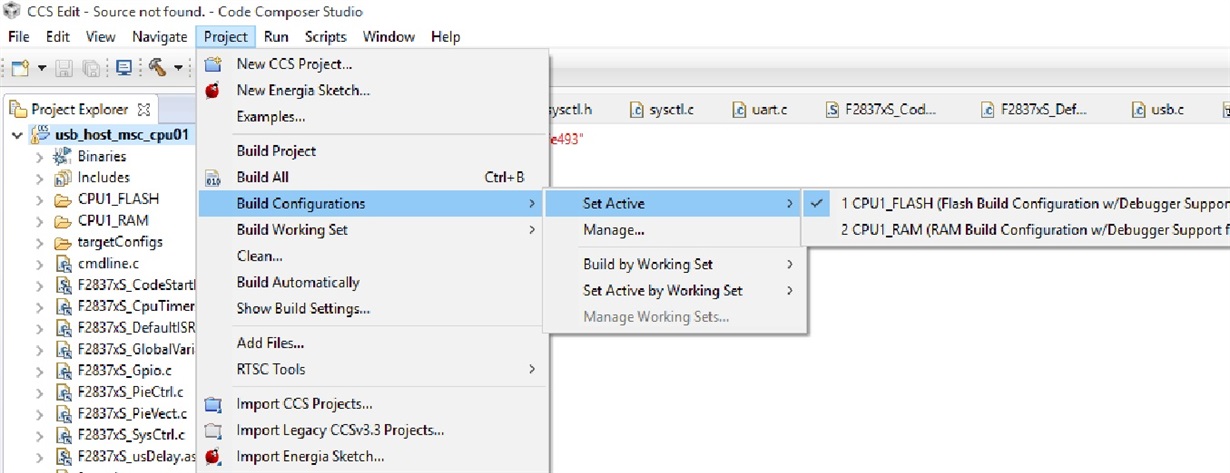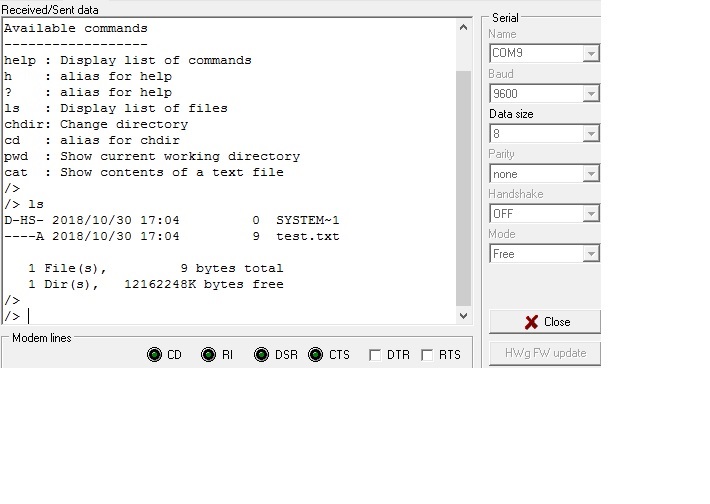Tool/software: Code Composer Studio
I am running example "usb_host_msc" from RAM and it is running.
But when I try to run it from FLASH it go in to illegal isr. I select FLASH from property-> general-> configuration->CPU1_FLASH-> SET_ACTIVE-> OK.
I also try to put "_FLASH" in predefined symbol --but it is not working.
when I run step by step debugging and I find out it is trapped in ISR after "USBHCDInit" function.
I want to use this code in to my project and it is running from FLASH. So please help ti solve this.





